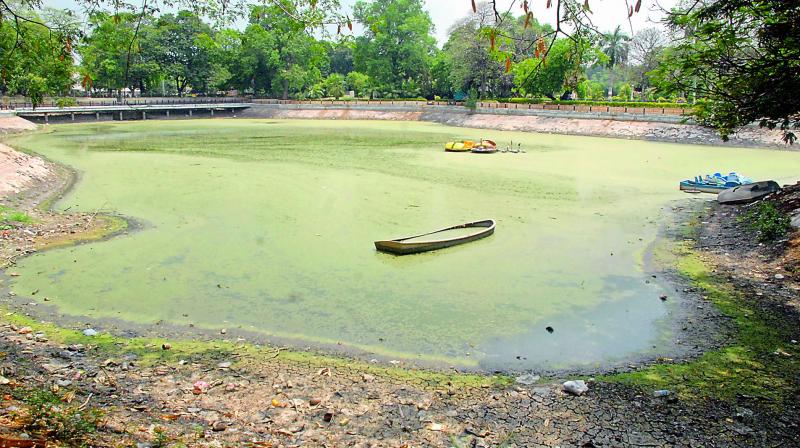Public Gardens cries for attention
According to the members of the Public Gardens Walkers Association, this way atleast the Public Gardens will get the much needed face lift.

While many like the idea of bringing the celebrations closer to the heart of the city and nerve centre of State administration, conservationists see red in it. They feel the move will spell doom for the city’s oldest recreational spot. Public Gardens has lost much of its lung space over the years with greenery giving way to concrete jungle. Now holding official celebrations, they feel, will open up floodgates for similar programmes in future.
“Government is setting a bad precedent”, says Sajjad Shahid of Centre of Deccan Studies. However, Anuradha Reddy, president, INTACH Hyderabad Chapter, is more guarded in her views. She doesn’t rubbish the idea but wants the celebrations to be sensitive to the green heritage. “The festivities should not result in digging up of the beautiful lawns or littering with waste as was the case in the Golconda Fort when the Republic Day programme was held,” she remarks.
Many walkers at the Public Gardens also echo similar views. They want the authorities to ensure that the flora and fauna is not disturbed during the celebrations. “It’s a wonderful idea to hold the Telangana Formation day fete in the Public Gardens as it has the right ambience with the stately Jubilee Hall in the background. When the then chief minister, N.T. Rama Rao, hosted a dinner to delegates of the International Film Festival on the Public Gardens lawns in 1986 people appreciated the move,” points out Ved Kumar, chairman, Forum for a Better Hyderabad. Nizam’s grandson, Nawab Najaf Ali Khan, also welcomes the idea.
Members of the Public Gardens Walkers Association (PGWA) have a selfish motive in welcoming KCR’s decision. They feel, this way atleast the Public Gardens will get the much needed face lift. “We have been telling the government about the sorry state of affairs but nobody listens. Today morning we were surprised to find workers taking up operation clean up,” says Ghulam Yezdani, president, PGWA.
As the mercury rises, the number of footfalls in the Public Gardens have gone up. But visitors don’t find the lung space they are looking for. Chinese Garden and Rose Garden remain just a distant memory. While one has given way to the open air theatre, the other is hemmed in by the road widening. “Time was when migratory birds used to come here from Siberia. But with one of the two artificial lakes disappearing they have stopped coming. The existing lake is also highly polluted,” says Yezdani, who is also a senior advocate.
At one point the PGWA had to petition the Lok Ayukta to stop the government from undertaking further construction in the Public Gardens. Telugu University, Lalita Kala Thoranam, Indira Priyadarshini auditorium, Bal Bhavan and the Protocol building have eaten into the lung space making a mockery of the objective for which the Public Gardens was created.
Constructed in 1846, the Bagh-e-Aam was originally spread over a huge area. Not many know that it was home to the zoo before it was shifted to the Nehru Zoological Park. The first ‘Numaish’ was also organised here to mark the birth anniversary of the seventh Nizam, Mir Osman Ali Khan. The elegant Jubilee Hall derives its name from the silver jubilee celebrations held in 1937 to commemorate the Nizam’s coronation. The beautiful pavilion inside reminds one of the place where the Nizam used to receive ‘nazr’ (cash tributes) on his birthday.
While celebrations are nothing new in the Public Gardens, the government’s overzealousness has led to the recreational area shrinking over the years. If you are looking for clean air or tranquillity banish the idea. Today Public Gardens cries out for attention. Once the celebrations are over, hopefully its upkeep is not neglected.

